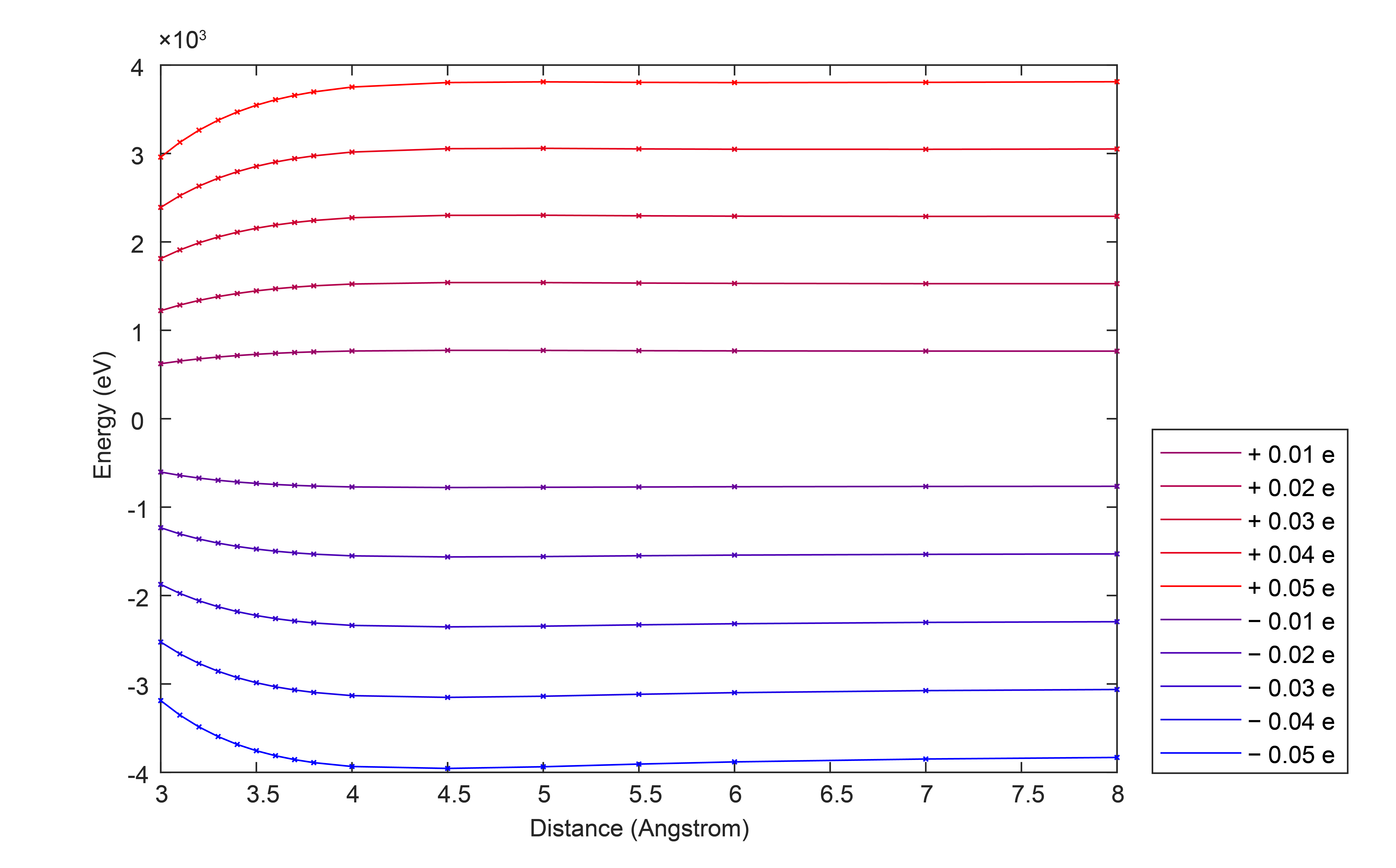Our group is now conducting experiments on the physical absorption process of charged thin films. According to the FAQ part in the VASP wiki (https://www.vasp.at/wiki/index.php/FAQ), I know it would be hard to use VASP in the absorption of ions. However, is it possible for VASP to deal with the system with charged slabs?
In specific, we are looking at the van der Walls interaction between the methane molecule and the charged graphene layer. We set a vacuum layer around 20Å along the z-axis. According to the band structure, if the number of electrons is small, it would first fill in the orbit of the graphene. So if I change the NELECT slightly (0.05e for example), the graphene layer would be charged while the methane is still neutral. Then we calculate the van der Walls energy by subtracting the energy of charged graphene and the energy of neutral methane from the energy of the charged system energy. We can plot the energy versus distance curve without doing any relaxation.
My question is that, are these energy curves reliable? As I find out that when the distance between methane and graphene is far away, where the van der Walls interaction should be tiny, there is still a non-neglectable van der Walls energy difference between the systems with different charges. As shown in the attached figure.

One of my INCAR files is shown below:
IVDW=20
LVDW_EWALD =.TRUE.
NSW=0
IBRION=-1
ISIF=2
PREC=Accurate
EDIFFG=1e-6
LWAVE=.F.
LCHARG=.F.
ISMEAR=-5
LORBIT=11
SIGMA=0.05
EDIFF=1e-7
ALGO=Fast
SYMPREC=1e-7
NELECT=136.0500
NPAR=16
KPAR=8
Thank you very much for any possible help!
Best regards,
Ziyi

